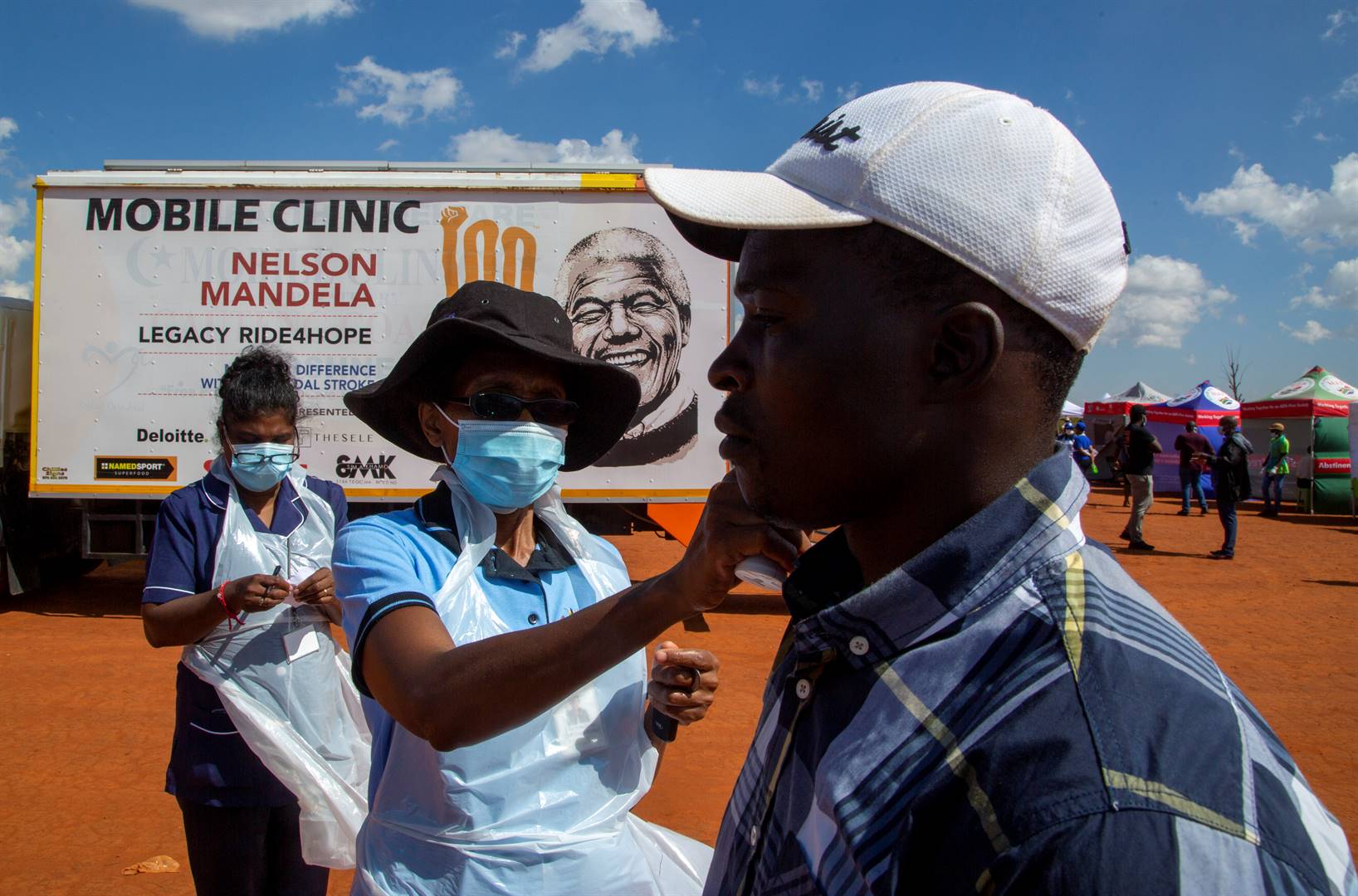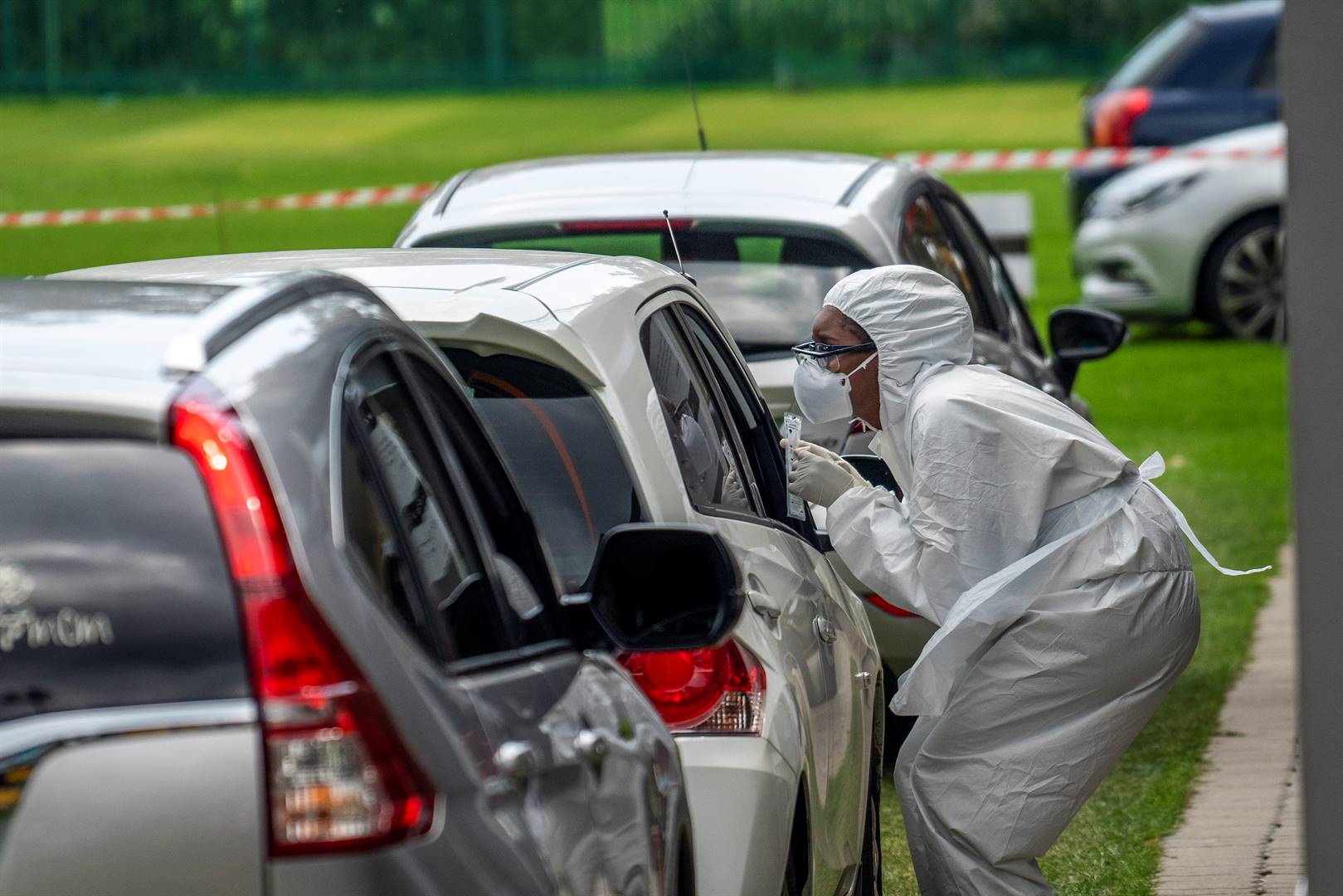
Some healthcare workers feel South Africa’s Covid-19 testing criteria should be broadened. Amy Green asks local health experts for their views.
Who should be eligible for Covid-19 testing in South Africa? The answer differs, depending on who you ask. While the current eligibility criteria for testing are clear, there are some working in the field who feel they’re too restrictive and should be broadened.
Testing is central to the Covid-19 strategy in South Africa and many other countries. Once a person tests positive, they can self-isolate, reducing the risk of transmitting the virus to others.
Apart from this benefit for the community, earlier testing also makes it more likely that individuals with Covid-19 will receive the healthcare services they need in time, should they become seriously ill.
The current criteria
. cough;
. sore throat;
. shortness of breath; or
. fever of more than 38°C (measured) or a history of fever (subjective), irrespective of admission status.
According to Professor Adrian Puren from the NICD, “the case definitions used by the NICD are informed by consultation with South African or international experts in the field and guidance from reputable organisations such as the World Health Organisation.
The final definitions are reviewed by the Ministerial Advisory Committee and signed off by the national department of health.
“In the case of community screening, the current criteria are [having] two respiratory symptoms,” he says.
But is there merit in broadening these criteria, for example, to anyone displaying even one symptom, or to all persons admitted to hospital, regardless of their respiratory illness status?
“The NICD has revised its criteria for testing as the epidemic has evolved,” says Puren. “The NICD took pragmatic decisions based on the knowledge available at the time, as well as the availability of resources [both human and testing reagents/platforms]. The case definition is a guide and the doctor and patient will always review the risk and make a decision on whether to test or not on an individual basis.”
The case for broadening the criteria
Dr Tom Boyles, an infectious diseases specialist based at Helen Joseph Hospital in Johannesburg, believes there’s merit in broadening the criteria. In fact, he and his team, who are assessing the readiness of a number of clinics in the city to combat Covid-19, are testing anyone displaying even just one of the four symptoms.
“I’m not suggesting everyone is doing that or should be doing that – not on the ground, in other words, in communities, at least,” he says.
According to Boyles, a “ballpark figure” of 5 000 people per day walk into the city’s clinics displaying at least one of the primary Covid-19 symptoms.
“If we put testing in every clinic, we could test about 5 000 people per day just in Johannesburg. But to do that, we’d need to set up the capacity, provide the consumables and, crucially, ensure we have the ability to properly follow up with those people who test positive,” he says.
According to figures provided by Health Minister Zweli Mkhize on Thursday, just under 10 000 Covid-19 tests had been conducted in the entire country in the preceding 24 hours. For most of this week, the national numbers fluctuated between 5 000 and 7 000 tests a day.
Boyles says the testing strategy should prioritise certain groups, but the health system is patchy with regard to following through on this.
For example, health workers, whether symptomatic or not, should be regularly tested. There have been directives issued to health facilities to this effect. This is important because health workers come into regular contact with vulnerable patients, such as those with pre-existing chronic conditions and weakened immune systems.
“The next group of people are sick people – anyone who comes into a hospital with a respiratory condition. These people should be held in wards away from Covid-19-negative patients until the outcome of the test is known. If they’re found to be negative, then they can be moved into wards with other negative patients,” says Boyles.
Why aren’t we scaling up more quickly?
Some weeks ago, the National Health Laboratory Service (NHLS) told spotlightnsd.co.za that it had the capacity to do 15 000 tests a day. It set a target of 36 000 tests aday by the end of this month.
While there’s been a clear upward trend in recent days, daily numbers are still below 10 000 and often still close to 5 000.
Why, then, is the country testing at lower rates than envisaged? Is it a capacity issue or is it about the eligibility criteria?
Professor Shabir Madhi, director of the SA Medical Research Council’s Respiratory & Meningeal Pathogens Research Unit, says it’s both.
“It’s due to the number of people meeting the eligibility criteria, as well as a number of other reasons. For example, the roll-out of community testing only started very recently, just before the Easter break, and we haven’t been able to ramp it up to full scale. There are a number of bottlenecks, such as staff training, which is ongoing, as well as the materials that are required for testing being in short supply. Another constraint is that swabs and material needed for testing in the laboratory are in short supply,” he told spotlightnsp.co.za.
According to Madhi, community testing should have been started long ago: “We should have been doing that right at the start of the lockdown.”
But should we be testing every person who’s admitted to hospital, instead of only those with respiratory illnesses?
“We could make a case for testing everyone in hospital settings. In the US, one study done on women coming into hospital to give birth showed that about 15% of them were infected and 80% of those were asymptomatic,” says Madhi.
However, he adds that the risk with this is that resources to test symptomatic individuals in the community could be diverted to asymptomatic patients in hospital.
Boyles also “sees merit” in testing all hospitalised individuals. “It would be like testing asymptomatic health workers. I see the benefit because Covid-19 can spread easily in these settings, where social distancing can’t be practised and, like staff, patients can come into contact with other vulnerable patients,” he says.
Questions over capacity
Puren points out that testing and tracing place high demands on the healthcare system and laboratories. “There’s certainly capacity in the case of laboratories to perform testing, but meeting the expected targets requires an increase in staff numbers. An additional consideration is the availability of reagents, given the current high levels of testing elsewhere in the world,” he says.
Andy Gray, a pharmacologist who’s a visiting fellow at the University of KwaZulu-Natal, sums up the situation.
“The obvious con of testing more widely is the impact on the laboratories, which could be overwhelmed, consuming resources and delaying results for positive cases. Delayed results mean more persons under isolation, which could also overwhelm that capacity. The pros of more liberal testing, if resources and capacity allow, are that milder cases may be diagnosed, interrupting transmission, and a better idea of true incidence obtained,” he says.
“As capacity to conduct molecular tests expands, I do think we need to widen the definition of persons under investigation, but carefully,” adds Gray.
“Travel history as a screening factor is becoming less important and if asymptomatic spread is happening, so is close contact with a known case. The last criterion can be expanded to include those with less severe symptoms. However, that needs to be done in a careful, stepwise fashion, so as not to overwhelm the testing capacity. There could also be a place for repeated testing of those at high risk of exposure, notably healthcare workers, even if they’re not symptomatic.”
Testing is the key to isolation
According to Boyles, the “key to mass testing isn’t simply the testing itself, but the ability to isolate people found to be positive”.
“Self-isolation is all very well for people in Sandton, with a spare room that has an en-suite jacuzzi and Wi-Fi, but the majority of South Africans live in crowded conditions, where a call to isolate is futile,” he explains. “What’s the point of knowing someone’s positive when there’s nothing we can do about it?”
Boyles is advocating the setting up of isolation facilities using, for example, large sports stadiums, where infected individuals can stay for the required 14 days until they’re no longer infectious and then return home.
“We can learn from the Chinese in this regard, because this is something they did very well,” he says. “In such a setting, there’s the advantage that everyone there is positive, except for the staff, and can’t spread Covid-19 to people who are negative, as well as the advantage that health workers can easily monitor people’s symptoms and, if an individual deteriorates, they can rapidly be sent to hospital.”
Read: Coronavirus: Gauteng plans for a big wave
Boyles believes it’s unfortunate that this kind of set-up has very negative associations with how drug-resistant tuberculosis (TB) patients were treated in the past – being forcefully sent to hospitals far away from their families for protracted periods.
“The terrible precedent of trying to lock away TB patients for six months is counterproductive. But, in this case, people aren’t likely to die – it would be for a short period and they should be allowed to bring their babies with them. We would need to make those places attractive to people and try to make them understand it’s their duty to isolate there without forcing them,” he says.
How does South Africa fare compared with what’s being done in other countries when it comes to testing?
“In Italy, they’re mainly testing people with severe disease in hospitals, because that’s where the epidemic demands the country’s focus. In Germany, they’re testing up to 50 000 people each day who are symptomatic. In the UK, they’re testing fewer than 10 000 each day, but the focus is on severe illness,” says Madhi.
However, Madhi says it isn’t constructive to compare South Africa’s testing approach with that of other countries, as the pandemic and socioeconomic circumstances here are entirely different.
He believes the current local testing criteria are adequate for what the country’s trying to achieve – to “flatten the curve”.
“Many people are using that phrase, but I don’t think the majority of the public understands it. Flattening the curve doesn’t mean we’re trying to end the epidemic. Successful elimination of Covid-19 in South Africa isn’t on the cards. What we’re trying to do is to control the rate of infection. Flattening the curve doesn’t mean fewer cases. There’ll be the same number of cases, but taking place over a longer period. We need the cases to be more spread out so that the health system can manage the additional load,” he explains.
. This article was produced by online journal Spotlight, featuring health journalism in the public interest. Like what you’re reading? Sign up for our newsletter and stay informed




 Publications
Publications
 Partners
Partners










